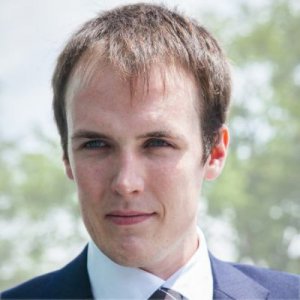Philosophy, friends and computer science: Colin Conrad (BA’10)
By Stephanie Taylor
When meeting Colin Conrad (BA’10), his passion for both philosophy and computer science soon shines through. There’s excitement that enters his voice when he begins explaining the meaning of computational social science, in which he is currently completing his Master’s. Then, there’s his shy smile when he says he stumbled on philosophy during his undergrad because it could answer some of life’s biggest questions in ways economics never could.
for both philosophy and computer science soon shines through. There’s excitement that enters his voice when he begins explaining the meaning of computational social science, in which he is currently completing his Master’s. Then, there’s his shy smile when he says he stumbled on philosophy during his undergrad because it could answer some of life’s biggest questions in ways economics never could.
“Social technologies are immensely powerful in changing the ways humans think of themselves in the world,” he says, explaining his thesis, which looks at the ways computers can be developed to study motivation.
“If all of a sudden I can have devices that work so well with my thinking functions that I’m able to process information quickly, I’m able to communicate more clearly, I’m able to identify when I have lapses in judgment,” which he believes will fundamentally change how human behaviour is understood.
Finding his niche
Conrad is back at Dal after completing one degree with the goal of completing a second. And while the two degrees—the first in philosophy and economics, the second in computer science—may seem unrelated, for Conrad their intersection has become his academic sweet spot.
Finding that crossing point of social science, computation and business began with two friends Conrad made during his first year at Dalhousie. “Without John and Jake I would have never gotten into computers,” he says.
Conrad met John Doucette (BCS’10) and Jacob Summers (BCS’10) in his first-year philosophy class, and the three decided to form a study group. The trio eventually joined the Philosophy Undergraduate Society and were introduced to larger collegial community.
With a little help from his friends
“If you were to ask me who my life long friends would have been in 2006 [when I started at Dal], it would have been a very different answer from 2010. But my answer is 2010 is the same as in 2015,” says Conrad.
The group helped Conrad “survive logic class.” The society also hosted a weekly colloquial event dubbed ‘Bagel Tuesdays’ where students would present papers in the works to their peers to receive constructive feedback.
Conrad says what he found most “meaningful about this community was that we pushed ourselves to be the best that we could be and we didn’t force ourselves to compete with each other at the other’s expense. And also the big party events where you learn a lot about life, the universe and everything,” he adds.
Moving forward in the field
Now with a Master’s degree from Dal nearly under his belt and plans to draft a PhD application, Conrad retains both the friendships and professional experience gained during his undergrad.
Besides shedding some arrogance over his four years, he says he learned the importance of delivering on commitments and quick thinking — both skills he feels place him at a distinct professional advantage.
Conrad is still unsure where his academic pursuits will lead him, although one possibility lies in teaching. He feels it would be an honour to not only to be among a community of like-minded researchers, dedicated to a field of study he believes is crucial to human society, but to have opportunities to share that knowledge with future generations of curious young scholars — like he once was.